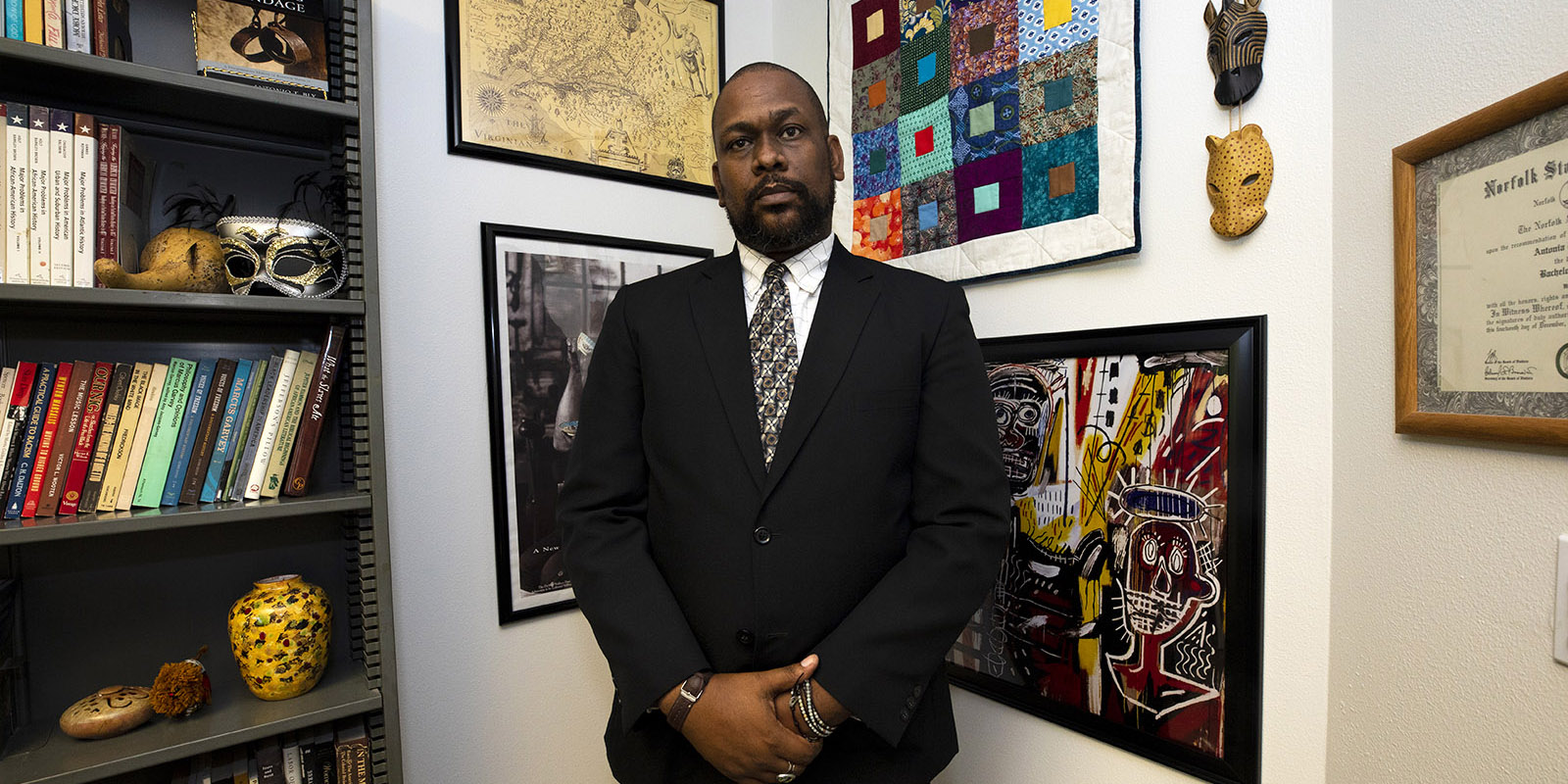

New Shattuck Chair Says It Happened Then, But It Matters Now
STUDENT SUCCESS
Ahmed V. Ortiz
“I’ll challenge anyone to show me any aspect of that moment in time and how it has not directly shaped and impacted us today.”
Cabaldon, longtime community leader, first to occupy Cramer chair
Christopher Cabaldon’s connections to California government, higher education, and urban planning and policymaking made him a logical choice for Sac State’s first Hazel Cramer Endowed Chair in the Department of Public Policy and Administration.
As West Sacramento’s longtime mayor, Cabaldon has overseen the city’s significant population surge and economic growth, and has established strong ties with regional and national leaders. In his position within the College of Social Sciences and Interdisciplinary Studies, Cabaldon said he wants to help raise Sac State’s profile and voice on issues such as distribution of social services, transportation innovations, and access to technology.
He also plans to develop new avenues for students to learn about urban planning and public policy in action.
Cabaldon’s position is supported by a gift from the late Hazel Cramer, whose donations also have funded an endowed scholarship at Sac State.
Read more about Cabaldon in the Sac State Newsroom online
– Cynthia Hubert
Antonio T. Bly wants students to have a panoramic view of colonial American history. What is seen through that lens, however, isn’t always as straightforward as it might seem.
History is being edited almost from the moment it happens, said Bly, who holds Sacramento State’s first Peter H. Shattuck Endowed Chair in Colonial American History. And it immediately becomes sterilized.
“It’s this kind of prefab, prepackaged thing that a lot of thought went into,” Bly said. “And we leave parts of it out.”
He cites the French historian Pierre Nora, who Bly said writes about the conflict between history and memory.
“History is corrupting and killing memory,” Bly said.
Recognizing that, he said, is the gateway to necessary conversations about historically underrepresented, or even misrepresented, groups such as African Americans, Native Americans, and women. “It opens the door to a much richer story.”
That’s the story he seeks to tell in his position, which is without precedent at the University. So he arrived after 12 years as an associate professor of History and Africana Studies at Appalachian State in Boone, N.C., with a degree of freedom to determine how that story is told.
He’s working with the Shattuck family, which provided funding for the chair, to ensure that the chairpersonship properly regards Peter Shattuck’s memory. His widow, Elizabeth, said she believes strongly in Bly, whose “warmth” struck her when they met during the interview process.
“Peter cared very much about each of his
students,” Elizabeth Shattuck said. “He cared about teaching, he cared about his subject, and Dr. Bly clearly shares all those essentials with Peter, which is why I’m so delighted he’s here.”
Bly also is the University’s first colonial specialist since the 1998 retirement of Peter Shattuck, who began teaching at Sac State in 1965 and died in 2015. Shattuck was honored with the Outstanding Teaching Award in 1994, and his legacy includes creation of a seminar for training history majors to teach at the university level, and having co-written the University’s first AIDS policy.
As a couple, Elizabeth and Peter were deeply involved with the community.
“I feel honored to be chosen for the position,” Bly said. “I look at it as trying to build a legacy for a professor who enjoyed teaching, inspired students, and is deserving of being remembered.”
In his office as the first week of the fall semester concluded, Bly, a native Virginian, was adjusting to life in California and, among other culture shocks, the idea of healthy barbecue. Meanwhile, the 120 students in the class he’s teaching – History 17A: United States History, 1607-1877 – were adjusting to his lively style. Bly moves, cajoles, challenges, and provokes students to think, and think hard, about colonial American history, that long-ago time that can seem like an abstraction, but which Bly said we separate from modernity at our own peril.
“Everything that we are now was established then,” he said. “The good, the bad, and the ugly. It started then.
“I’ll challenge anyone to show me any aspect of that moment in time and how it has not directly shaped and impacted us today.”
Bly said membership in the Colonial Society of Massachusetts, which he recently joined, and the Jamestown Yorktown Foundation have provided benefits he hopes to pass on to students. He aspires to bring to campus public historians for guest lectures “that will blow your mind,” as well as take students to the East Coast to visit colonial American landmarks.
“History should move around you,” he said. “And sometimes swallow you whole and spit you back out – hopefully better.”